Fleurs du Mal Magazine


Or see the index
.jpg)
W i l l i a m S h a k e s p e a r e
(1564-1616)
T H E S O N N E T S
9
Is it for fear to wet a widow’s eye,
That thou consum’st thy self in single life?
Ah, if thou issueless shalt hap to die,
The world will wail thee like a makeless wife,
The world will be thy widow and still weep,
That thou no form of thee hast left behind,
When every private widow well may keep,
By children’s eyes, her husband’s shape in mind:
Look what an unthrift in the world doth spend
Shifts but his place, for still the world enjoys it;
But beauty’s waste hath in the world an end,
And kept unused the user so destroys it:
No love toward others in that bosom sits
That on himself such murd’rous shame commits.
![]()
k e m p i s p o e t r y m a g a z i n e
More in: -Shakespeare Sonnets
.jpg)
W i l l i a m S h a k e s p e a r e
(1564-1616)
T H E S O N N E T S
8
Music to hear, why hear’st thou music sadly?
Sweets with sweets war not, joy delights in joy:
Why lov’st thou that which thou receiv’st not gladly,
Or else receiv’st with pleasure thine annoy?
If the true concord of well-tuned sounds,
By unions married do offend thine ear,
They do but sweetly chide thee, who confounds
In singleness the parts that thou shouldst bear:
Mark how one string sweet husband to another,
Strikes each in each by mutual ordering;
Resembling sire, and child, and happy mother,
Who all in one, one pleasing note do sing:
Whose speechless song being many, seeming one,
Sings this to thee, ‘Thou single wilt prove none’.
![]()
k e m p i s p o e t r y m a g a z i n e
More in: -Shakespeare Sonnets
.jpg)
W i l l i a m S h a k e s p e a r e
(1564-1616)
T H E S O N N E T S
7
Lo in the orient when the gracious light
Lifts up his burning head, each under eye
Doth homage to his new-appearing sight,
Serving with looks his sacred majesty,
And having climbed the steep-up heavenly hill,
Resembling strong youth in his middle age,
Yet mortal looks adore his beauty still,
Attending on his golden pilgrimage:
But when from highmost pitch with weary car,
Like feeble age he reeleth from the day,
The eyes (fore duteous) now converted are
From his low tract and look another way:
So thou, thy self out-going in thy noon:
Unlooked on diest unless thou get a son.
![]()
k e m p i s p o e t r y m a g a z i n e
More in: -Shakespeare Sonnets
.jpg)
W i l l i a m S h a k e s p e a r e
(1564-1616)
T H E S O N N E T S
6
Then let not winter’s ragged hand deface,
In thee thy summer ere thou be distilled:
Make sweet some vial; treasure thou some place,
With beauty’s treasure ere it be self-killed:
That use is not forbidden usury,
Which happies those that pay the willing loan;
That’s for thy self to breed another thee,
Or ten times happier be it ten for one,
Ten times thy self were happier than thou art,
If ten of thine ten times refigured thee:
Then what could death do if thou shouldst depart,
Leaving thee living in posterity?
Be not self-willed for thou art much too fair,
To be death’s conquest and make worms thine heir.
![]()
k e m p i s p o e t r y m a g a z i n e
More in: -Shakespeare Sonnets
.jpg)
W i l l i a m S h a k e s p e a r e
(1564-1616)
T H E S O N N E T S
5
Those hours that with gentle work did frame
The lovely gaze where every eye doth dwell
Will play the tyrants to the very same,
And that unfair which fairly doth excel:
For never-resting time leads summer on
To hideous winter and confounds him there,
Sap checked with frost and lusty leaves quite gone,
Beauty o’er-snowed and bareness every where:
Then were not summer’s distillation left
A liquid prisoner pent in walls of glass,
Beauty’s effect with beauty were bereft,
Nor it nor no remembrance what it was.
But flowers distilled though they with winter meet,
Leese but their show, their substance still lives sweet.
![]()
k e m p i s p o e t r y m a g a z i n e
More in: -Shakespeare Sonnets
.jpg)
W i l l i a m S h a k e s p e a r e
(1564-1616)
T H E S O N N E T S
4
Unthrifty loveliness why dost thou spend,
Upon thy self thy beauty’s legacy?
Nature’s bequest gives nothing but doth lend,
And being frank she lends to those are free:
Then beauteous niggard why dost thou abuse,
The bounteous largess given thee to give?
Profitless usurer why dost thou use
So great a sum of sums yet canst not live?
For having traffic with thy self alone,
Thou of thy self thy sweet self dost deceive,
Then how when nature calls thee to be gone,
What acceptable audit canst thou leave?
Thy unused beauty must be tombed with thee,
Which used lives th’ executor to be.
![]()
k e m p i s p o e t r y m a g a z i n e
More in: -Shakespeare Sonnets
.jpg)
W i l l i a m S h a k e s p e a r e
(1564-1616)
T H E S O N N E T S
3
Look in thy glass and tell the face thou viewest,
Now is the time that face should form another,
Whose fresh repair if now thou not renewest,
Thou dost beguile the world, unbless some mother.
For where is she so fair whose uneared womb
Disdains the tillage of thy husbandry?
Or who is he so fond will be the tomb,
Of his self-love to stop posterity?
Thou art thy mother’s glass and she in thee
Calls back the lovely April of her prime,
So thou through windows of thine age shalt see,
Despite of wrinkles this thy golden time.
But if thou live remembered not to be,
Die single and thine image dies with thee.
![]()
k e m p i s p o e t r y m a g a z i n e
More in: -Shakespeare Sonnets
.jpg)
W i l l i a m S h a k e s p e a r e
(1564-1616)
T H E S O N N E T S
2
When forty winters shall besiege thy brow,
And dig deep trenches in thy beauty’s field,
Thy youth’s proud livery so gazed on now,
Will be a tattered weed of small worth held:
Then being asked, where all thy beauty lies,
Where all the treasure of thy lusty days;
To say within thine own deep sunken eyes,
Were an all-eating shame, and thriftless praise.
How much more praise deserved thy beauty’s use,
If thou couldst answer ‘This fair child of mine
Shall sum my count, and make my old excuse’
Proving his beauty by succession thine.
This were to be new made when thou art old,
And see thy blood warm when thou feel’st it cold.
![]()
k e m p i s p o e t r y m a g a z i n e
More in: -Shakespeare Sonnets
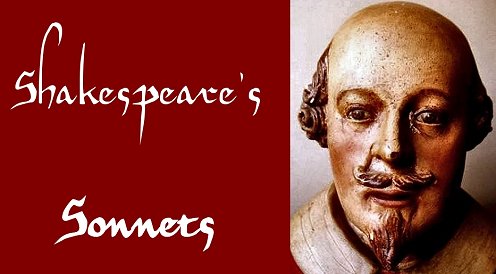
W i l l i a m S h a k e s p e a r e
(1564-1616)
T H E S O N N E T S
1
From fairest creatures we desire increase,
That thereby beauty’s rose might never die,
But as the riper should by time decease,
His tender heir might bear his memory:
But thou contracted to thine own bright eyes,
Feed’st thy light’s flame with self-substantial fuel,
Making a famine where abundance lies,
Thy self thy foe, to thy sweet self too cruel:
Thou that art now the world’s fresh ornament,
And only herald to the gaudy spring,
Within thine own bud buriest thy content,
And tender churl mak’st waste in niggarding:
Pity the world, or else this glutton be,
To eat the world’s due, by the grave and thee.
![]()
k e m p i s p o e t r y m a g a z i n e
More in: -Shakespeare Sonnets

William Shakespeare
(1564-1616)
Sonnets 65 – 71
65
Since brass, nor stone, nor earth, nor boundless sea,
But sad mortality o’ersways their power,
How with this rage shall beauty hold a plea,
Whose action is no stronger than a flower?
O how shall summer’s honey breath hold out,
Against the wrackful siege of batt’ring days,
When rocks impregnable are not so stout,
Nor gates of steel so strong but time decays?
O fearful meditation, where alack,
Shall Time’s best jewel from Time’s chest lie hid?
Or what strong hand can hold his swift foot back,
Or who his spoil of beauty can forbid?
O none, unless this miracle have might,
That in black ink my love may still shine bright.

66
Tired with all these for restful death I cry,
As to behold desert a beggar born,
And needy nothing trimmed in jollity,
And purest faith unhappily forsworn,
And gilded honour shamefully misplaced,
And maiden virtue rudely strumpeted,
And right perfection wrongfully disgraced,
And strength by limping sway disabled
And art made tongue-tied by authority,
And folly (doctor-like) controlling skill,
And simple truth miscalled simplicity,
And captive good attending captain ill.
Tired with all these, from these would I be gone,
Save that to die, I leave my love alone.

67
Ah wherefore with infection should he live,
And with his presence grace impiety,
That sin by him advantage should achieve,
And lace it self with his society?
Why should false painting imitate his cheek,
And steal dead seeming of his living hue?
Why should poor beauty indirectly seek,
Roses of shadow, since his rose is true?
Why should he live, now nature bankrupt is,
Beggared of blood to blush through lively veins,
For she hath no exchequer now but his,
And proud of many, lives upon his gains?
O him she stores, to show what wealth she had,
In days long since, before these last so bad.
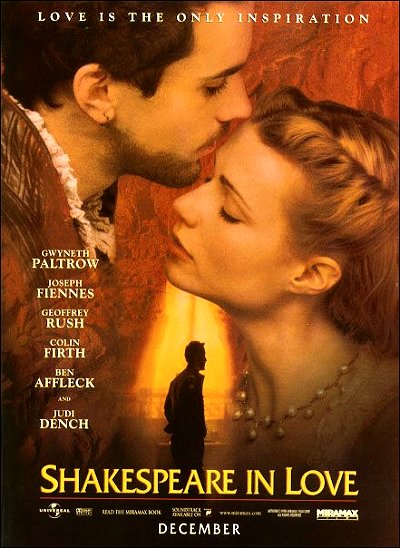
68
Thus is his cheek the map of days outworn,
When beauty lived and died as flowers do now,
Before these bastard signs of fair were born,
Or durst inhabit on a living brow:
Before the golden tresses of the dead,
The right of sepulchres, were shorn away,
To live a second life on second head,
Ere beauty’s dead fleece made another gay:
In him those holy antique hours are seen,
Without all ornament, it self and true,
Making no summer of another’s green,
Robbing no old to dress his beauty new,
And him as for a map doth Nature store,
To show false Art what beauty was of yore.
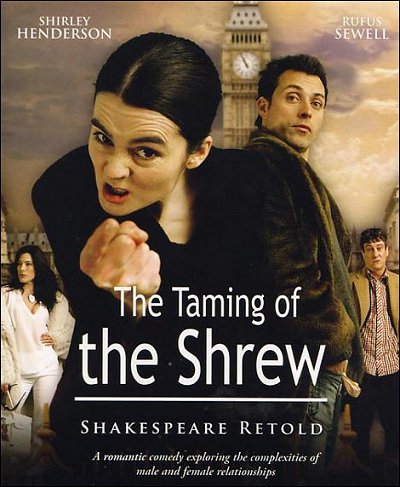
69
Those parts of thee that the world’s eye doth view,
Want nothing that the thought of hearts can mend:
All tongues (the voice of souls) give thee that due,
Uttering bare truth, even so as foes commend.
Thy outward thus with outward praise is crowned,
But those same tongues that give thee so thine own,
In other accents do this praise confound
By seeing farther than the eye hath shown.
They look into the beauty of thy mind,
And that in guess they measure by thy deeds,
Then churls their thoughts (although their eyes were kind)
To thy fair flower add the rank smell of weeds:
But why thy odour matcheth not thy show,
The soil is this, that thou dost common grow.

70
That thou art blamed shall not be thy defect,
For slander’s mark was ever yet the fair,
The ornament of beauty is suspect,
A crow that flies in heaven’s sweetest air.
So thou be good, slander doth but approve,
Thy worth the greater being wooed of time,
For canker vice the sweetest buds doth love,
And thou present’st a pure unstained prime.
Thou hast passed by the ambush of young days,
Either not assailed, or victor being charged,
Yet this thy praise cannot be so thy praise,
To tie up envy, evermore enlarged,
If some suspect of ill masked not thy show,
Then thou alone kingdoms of hearts shouldst owe.
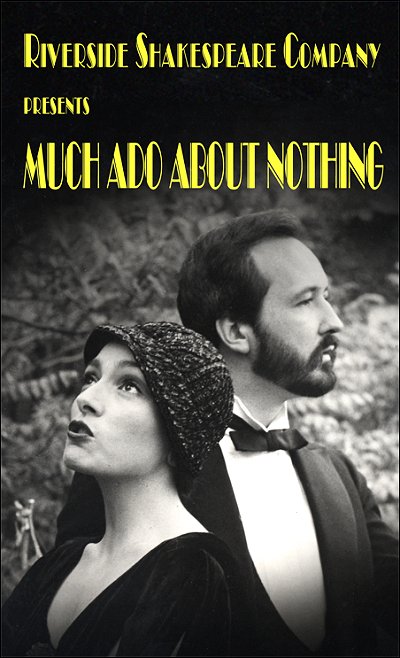
71
No longer mourn for me when I am dead,
Than you shall hear the surly sullen bell
Give warning to the world that I am fled
From this vile world with vilest worms to dwell:
Nay if you read this line, remember not,
The hand that writ it, for I love you so,
That I in your sweet thoughts would be forgot,
If thinking on me then should make you woe.
O if (I say) you look upon this verse,
When I (perhaps) compounded am with clay,
Do not so much as my poor name rehearse;
But let your love even with my life decay.
Lest the wise world should look into your moan,
And mock you with me after I am gone.

William Shakespeare: Sonnets 65-71
kemp=mag poetry magazine
More in: Shakespeare, William

William Shakespeare
(1564-1616)
SONNETS TO SUNDRY NOTES OF MUSIC
I
It was a lording’s daughter, the fairest one of three,
That liked of her master as well as well might be.
Till looking on an Englishman, the fair’st that eye could see,
Her fancy fell a-turning.
Long was the combat doubtful, that love with love did fight,
To leave the master loveless, or kill the gallant knight;
To put in practice either, alas, it was a spite
Unto the silly damsel!
But one must be refused, more mickle was the pain,
That nothing could be used, to turn them both to gain,
For of the two the trusty knight was wounded with disdain:
Alas, she could not help it!
Thus art, with arms contending, was victor of the day,
Which by a gift of learnlng did bear the maid away;
Then, lullaby, the learned man hath got the lady gay;
For now my song is ended.
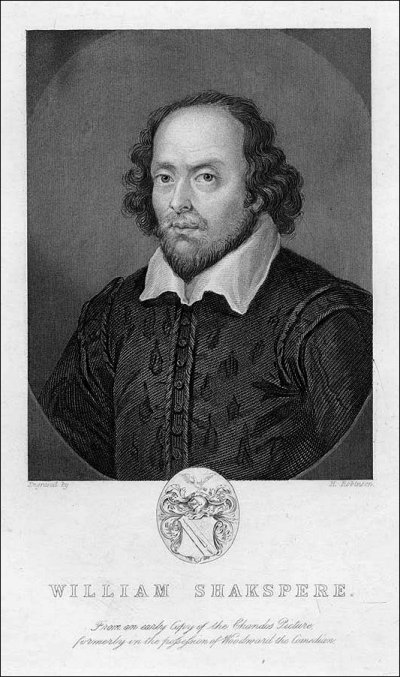
II
On a day (alack the day!)
Love, whose month was ever May,
Spied a blossom passing fair,
Playing in the wanton air:
Through the velvet leaves the wind,
All unseen, ‘gan passage find;
That the lover, sick to death,
Wish’d himself the heaven’s breath.
Air, quoth he, thy cheeks may blow;
Air, would I might triumph so!
But, alas! my hand hath sworn
Ne’er to pluck thee from thy thorn:
Vow, alack, for youth unmeet,
Youth, so apt to pluck a sweet,
Thou for whom Jove would swear
Juno but an Ethiope were;
And deny himself for Jove,
Turning mortal for thy love.

III
My flocks feed not,
My ewes breed not,
My rams speed not,
All is amiss:
Love is dying,
Faith’s defying,
Heart’s denying,
Causer of this.
All my merry jigs are quite forgot,
All my lady’s love is lost, God wot:
Where her faith was firmly fix’d in love,
There a nay is plac’d without remove.
One silly cross
Wrought all my loss;
O frowning Fortune, cursed, fickle dame!
For now I see,
Inconstancy
More in women than in men remain.
In black mourn I,
All fears scorn I,
Love bath forlorn me,
Living in thrall:
Heart is bleeding,
All help needing,
(O cruel speeding!)
Fraughted with gall.
My shepherd’s pipe can sound no deal,
My wether’s bell rings doleful knell;
My curtail dog, that wont to have play’d,
Plays not at all, but seems afraid;
With sighs so deep,
Procures to weep,
In howling-wise, to see my doleful plight.
How sighs resound
Through heartless ground,
Like a thousand vanquish’d men in bloody fight!
Clear wells spring not,
Sweet birds sing not,
Green plants bring not
Forth; they die;
Herds stand weeping,
Flocks all sleeping,
Nymphs back peeping
Fearfully.
All our pleasure known to us poor swains,
All our merry meetings on the plains,
All our evening sport from us is fled,
All our love is lost, for Love is dead.
Farewell, sweet lass,
Thy like ne’er was
For a sweet content, the cause of all my moan:
Poor Coridon
Must live alone,
Other help for him I see that there is none.
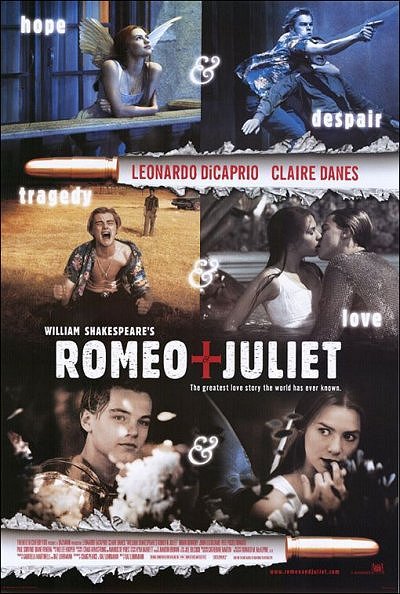
IV
When as thine eye hath chose the dame,
And stall’d the deer that thou shouldst strike,
Let reason rule things worthy blame,
As well as fancy partial might:
Take counsel of some wiser head,
Neither too young, nor yet unwed.
And when thou com’st thy tale to tell,
Smooth not thy tongue with filed talk,
Lest she some subtle practice smell,
(A cripple soon can find a halt:)
But plainly say thou lov’st her well,
And set thy person forth to sell.
What though her frowning brows be bent,
Her cloudy looks will calm ere night;
And then too late she will repent,
That thus dissembled her delight;
And twice desire, ere it be day,
That which with scorn she put away.
What though she strive to try her strength,
And ban and brawl, and say thee nay,
Her feeble force will yield at length,
When craft hath taught her thus to say:
‘Had women been so strong as men,
In faith, you had not had it then.’
And to her will frame all thy ways;
Spare not to spend,–and chiefly there
Where thy desert may merit praise,
By ringing in thy lady’s ear:
The strongest castle, tower, and town,
The golden bullet beats it down.
Serve always with assured trust,
And in thy suit be humble, true;
Unless thy lady prove unjust,
Press never thou to choose anew:
When time shall serve, be thou not slack
To proffer, though she put thee back.
The wiles and guiles that women work,
Dissembled with an outward show,
The tricks and toys that in them lurk,
The cock that treads them shall not know.
Have you not heard it said full oft,
A woman’s nay doth stand for naught?
Think women still to strive with men,
To sin, and never for to saint:
There is no heaven, by holy then,
When time with age doth them attaint.
Were kisses all the joys in bed,
One woman would another wed.
But, soft! enough,–too much, I fear;
Lest that my mistress hear my song;
She’ll not stick to round me i’ the ear,
To teach my tongue to be so long:
Yet will she blush, here be it said,
To hear her secrets so bewray’d.
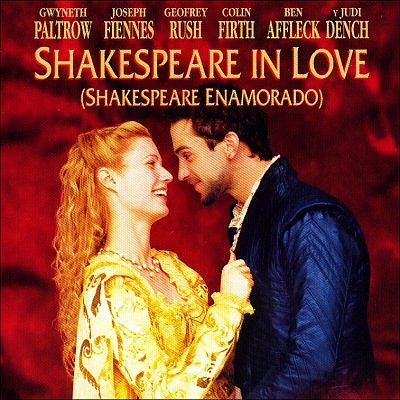
V
Live with me, and be my love,
And we will all the pleasures prove,
That hills and valleys, dales and fields,
And all the craggy mountains yields.
There will we sit upon the rocks,
And see the shepherds feed their flocks,
By shallow rivers, by whose falls
Melodious birds sing madrigals.
There will I make thee a bed of roses,
With a thousand fragrant posies,
A cap of flowers, and a kirtle
Embroider’d all with leaves of myrtle.
A belt of straw and ivy buds,
With coral clasps and amber studs;
And if these pleasures may thee move,
Then live with me and be my love.
LOVE’S ANSWER.
If that the world and love were young,
And truth in every shepherd’s tongue,
These pretty pleasures might me move
To live with thee and be thy love.
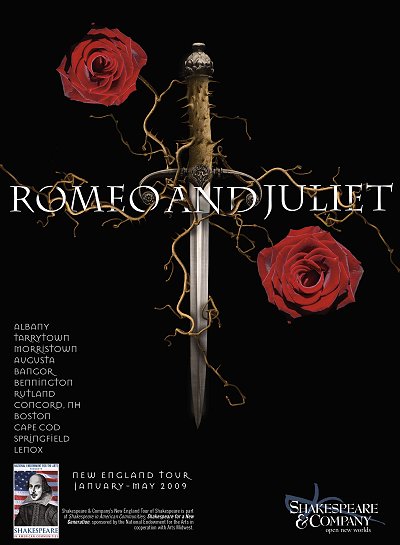
VI
As it fell upon a day
In the merry month of May,
Sitting in a pleasant shade
Which a grove of myrtles made,
Beasts did leap, and birds did sing,
Trees did grow, and plants did spring;
Everything did banish moan,
Save the nightingale alone:
She, poor bird, as all forlorn,
Lean’d her breast up-till a thorn,
And there sung the dolefull’st ditty,
That to hear it was great pity:
Fie, fie, fie, now would she cry;
Teru, teru, by and by:
That to hear her so complain,
Scarce I could from tears refrain;
For her griefs, so lively shown,
Made me think upon mine own.
Ah, thought I, thou mourn’st in vain;
None take pity on thy pain:
Senseless trees, they cannot hear thee;
Ruthless bears, they will not cheer thee.
King Pandion, he is dead;
All thy friends are lapp’d in lead;
All thy fellow-birds do sing,
Careless of thy sorrowing.
Even so, poor bird, like thee,
None alive will pity me.
Whilst as fickle fortune smil’d,
Thou and I were both beguil’d.
Every one that flatters thee
Is no friend in misery.
Words are easy like the wind;
Faithful friends are hard to find.
Every man will be thy friend,
Whilst thou hast wherewith to spend;
But if store of crowns be scant,
No man will supply thy want.
If that one be prodigal,
Bountiful they will him call:
And with such-like flattering,
‘Pity but he were a king.’
If he be addict to vice,
Quickly him they will entice;
If to women he be bent,
They have at commandement:
But if fortune once do frown,
Then farewell his great renown:
They that fawn’d on him before,
Use his company no more.
He that is thy frend indeed,
He will help thee in thy need;
If thou sorrow, he will weep;
If thou wake, he cannot sleep:
Thus of every grief in heart
He with thee doth bear a part.
These are certain signs to know
Faithful friend from flattering foe.

kemp=mag poetry magazine
More in: Shakespeare, William
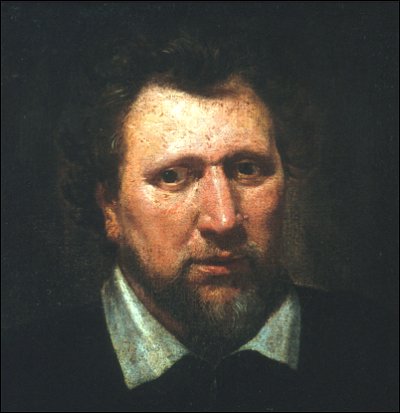
.jpg)
B e n J o n s o n
(1572-1637)
To the memory of
my beloved master
William Shakespeare,
and what he hath left us
To draw no envy, Shakspeare, on thy name,
Am I thus ample to thy book and fame;
While I confess thy writings to be such,
As neither man, nor muse can praise too much.
’Tis true, and all men’s suffrage. But these ways
Were not the paths I meant unto thy praise;
For silliest ignorance on these may light,
Which, when it sounds at best, but echoes right;
Or blind affection, which doth ne’er advance
The truth, but gropes, and urgeth all by chance;
Or crafty malice might pretend this praise,
And think to ruin, where it seemed to raise.
These are, as some infamous bawd, or whore,
Should praise a matron; what would hurt her more?
But thou art proof against them, and, indeed,
Above the ill-fortune of them, or the need.
I, therefore, will begin: Soul of the age!
The applause! delight! and wonder of our stage!
My Shakspeare rise! I will not lodge thee by
Chaucer, or Spenser, or bid Beaumont lie
A little further off, to make thee room:
Thou art a monument without a tomb,
And art alive still, while thy book doth live
And we have wits to read, and praise to give.
That I not mix thee so, my brain excuses,
I mean with great, but disproportioned Muses;
For if I thought my judgment were of years,
I should commit thee surely with thy peers,
And tell how far thou didst our Lily outshine,
Or sporting Kyd, or Marlow’s mighty line.
And though thou hadst small Latin and less Greek,
From thence to honour thee, I will not seek
For names: but call forth thundering Eschylus,
Euripides, and Sophocles to us,
Pacuvius, Accius, him of Cordoua dead,
To live again, to hear thy buskin tread,
And shake a stage; or, when thy socks were on,
Leave thee alone for the comparison
Of all that insolent Greece, or haughty Rome
Sent forth, or since did from their ashes come.
Triumph, my Britain, thou hast one to show,
To whom all scenes of Europe homage owe.
He was not of an age, but for all time!
And all the Muses still were in their prime,
When, like Apollo, he came forth to warm
Our ears, or like a Mercury to charm!
Nature herself was proud of his designs,
And joyed to wear the dressing of his lines!
Which were so richly spun, and woven so fit,
As, since, she will vouchsafe no other wit.
The merry Greek, tart Aristophanes,
Neat Terence, witty Plautus, now not please;
But antiquated and deserted lie,
As they were not of nature’s family.
Yet must I not give nature all; thy art,
My gentle Shakspeare, must enjoy a part.
For though the poet’s matter nature be,
His heart doth give the fashion: and, that he
Who casts to write a living line, must sweat,
(Such as thine are) and strike the second heat
Upon the Muse’s anvil; turn the same,
And himself with it, that he thinks to frame;
Or for the laurel, he may gain a scorn;
For a good poet’s made, as well as born.
And such wert thou! Look how the father’s face
Lives in his issue, even so the race
Of Shakspeare’s mind and manners brightly shines
In his well-turnèd, and true filèd lines;
In each of which he seems to shake a lance,
As brandished at the eyes of ignorance.
Sweet Swan of Avon! what a sight it were
To see thee in our water yet appear,
And make those flights upon the banks of Thames,
That so did take Eliza, and our James!
But stay, I see thee in the hemisphere
Advanced, and made a constellation there!
Shine forth, thou star of poets, and with rage,
Or influence, chide, or cheer the drooping stage,
Which, since thy flight from hence, hath mourned like night,
And despairs day, but for thy volume’s light.
Poem of the week – November 30, 2008
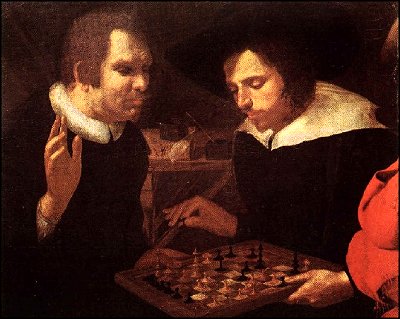
kemp=mag poetry magazine
More in: Archive I-J, Shakespeare, William
Thank you for reading Fleurs du Mal - magazine for art & literature